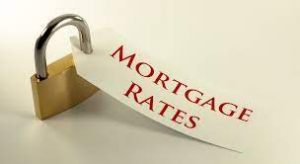In the dynamic landscape of Canadian real estate, aspiring homeowners, particularly first-time buyers, often face challenges in navigating the path to homeownership. However, with the availability of various first-time home buyer programs across Canada, the dream of owning a home becomes more attainable for many. In this blog post, we’ll explore the different first-time home buyer programs available in Canada, shedding light on eligibility criteria, benefits, and how they can pave the way to your dream home.
1. Home Buyers’ Plan (HBP):
What is it?
The Home Buyers’ Plan (HBP) is a federal program that allows first-time home buyers to withdraw up to $35,000 from their Registered Retirement Savings Plan (RRSP) to purchase or build a qualifying home.
Eligibility:
- You can only use your own RRSPs for an HBP withdrawal.
- The maximum withdrawal is $35,000 per eligible person.
- The house you’re buying or building must be in Canada.
- You must be a first-time home buyer (or not have been a homeowner within the previous four years).
- You must be a resident of Canada.
- The property must become your principal residence before October 1 of the year following the RRSP withdrawal. (Be careful if your property is under construction, because delays might prevent you from meeting the deadline.)
- The money you withdraw under the HBP must have been contributed to your RRSP at least 90 days before withdrawal.
- You can’t use the HBP for a second home, like a cottage. But the property you’re buying doesn’t need to be a single-family home. You can also take advantage of the HBP to buy a unit in a triplex or a high-rise.
- You have to repay the money you withdraw within 15 years. (The 15-year period begins in the second calendar year after the withdrawal.)
2. First-Time Home Buyer Incentive (FTHBI):
What is it?
Introduced by the Canadian government, the First-Time Home Buyer Incentive (FTHBI) aims to make homeownership more affordable by providing shared equity mortgages with the government.
The incentive amounts to 5% of the property’s value for an existing home and 5% or 10% for a new home. The incentive is an interest-free loan. It must be reimbursed when the property is sold or within 25 years of purchase. The amount repaid will be based on the value of the property at that time.
3. Land Transfer Tax Rebates:
What are they?
Many provinces and territories in Canada offer land transfer tax rebates or exemptions for first-time home buyers. This rebate can significantly reduce the upfront costs associated with purchasing a home.
Eligibility:
Eligibility criteria for land transfer tax rebates vary by province or territory. Generally, first-time buyers are defined as individuals who have never owned a home or have not owned one in the last several years.
Beginning January 1, 2017 for Ontario residents, no land transfer tax would be payable by qualifying first‑time purchasers on the first $368,000 of the value of the consideration for eligible homes. First‑time purchasers of homes greater than $368,000 would receive a maximum refund of $4,000.
4. First-Time Home Buyer Grants and Programs:
What are they?
Several municipalities, provinces, and non-profit organizations offer grants, incentives, and programs specifically designed to assist first-time home buyers with down payments, closing costs, and homeownership education.
Eligibility:
Eligibility criteria for these programs vary widely and may include factors such as income level, residency status, and property location. It’s essential to research and inquire about available programs in your area.
5. The Tax-Free Home Savings Account (FHSA)
The FHSA is a new account that allows you to save for your first home. It also allows you to make tax-deductible contributions of up to $8,000 per year, up to a lifetime maximum of $40,000. Your contribution room starts to accumulate as soon as you open your first account. You can carry forward your unused FHSA contribution room, up to a maximum of $8,000, to use in the following year.
Eligibility:
To open a tax-free First Home Savings Account (FHSA), you must meet the following eligibility criteria:
- You must be a resident of Canada.
- You must be between 18 and 71 years old*
- You and your spouse must not own a home in Canada. This means you must be a first-time home buyer.
Conclusion:
Navigating the realm of first-time home buyer programs in Canada can be daunting, but with the right knowledge and guidance, aspiring homeowners can unlock a world of opportunities to achieve their homeownership dreams. From utilizing the Home Buyers’ Plan and First-Time Home Buyer Incentive to exploring land transfer tax rebates and local grants, there are various avenues to make homeownership more accessible and affordable.
At DLC Forest City Funding, we specialize in helping first-time home buyers navigate the complexities of the Canadian real estate market and leverage available programs to their advantage. Contact us today to learn more about how you can take advantage of first-time home buyer programs and embark on your journey to homeownership with confidence.
Cheers,
Morgan McAlpine




 ur best referral sources for a lawyer will be friends and business associates.
ur best referral sources for a lawyer will be friends and business associates. 6. Will you be responsible for building permits?
6. Will you be responsible for building permits?